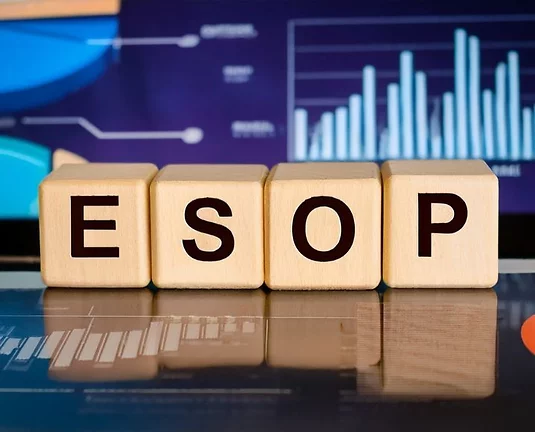Overview
Foster Swift has developed a robust and extremely active ESOP practice over the last 30+ years, advising ESOP clients with regard to various succession planning, legal compliance, and fiduciary issues. We currently represent 30-35 active ESOPs on an ongoing basis and are involved in 6-10 ESOP transactions per year. Our ESOP team has a depth of experience that includes areas of expertise in corporate law, finance, ERISA, and executive compensation. We represent companies, selling shareholders, trustees, and boards of directors in various industries.
Foster Swift is routinely involved in ESOP transactions with issues ranging from initial implementation to second-stage transactions to final sales to strategic buyers. Our ongoing ESOP consulting services include:
- ESOP design and establishment
- Plan documentation and amendments as necessary
- Guidance about operational and administrative issues
- Department of Labor fiduciary duties
- Representation in ESOP transactions
- Compliance issues
- Disclosure obligations
- Reporting obligations
- Education for employees about a company’s ESOP
- Tax planning for ESOP transaction
- ERISA regulation guidance
- Executive compensation planning in coordination with ESOP formation
- Compliance review
- Assistance with Department of Labor or Internal Revenue Service audits
We would welcome the opportunity to talk with you about whether an ESOP would be a good fit for your company.
Overview and Benefits
Employee Stock Ownership Plans (known as “ESOPs”) are qualified retirement plans that invest primarily in employer stock. The ESOP operates as a separate legal entity from the company and may serve as a potential buyer of the company. ESOPs offer the following advantages:
- ESOPs are a tool to attract and retain talent
- ESOPs provide retirement benefits to ESOP participants
- ESOPs encourage employees to promote the success of the business
- ESOPs can provide a liquidity for the selling shareholder
- ESOPs provide additional tax planning opportunities to companies and selling shareholders
Disadvantages of ESOPs
While there are many benefits to establishing an ESOP, there are some disadvantages too. For example, the ongoing expense of operating an ESOP can be high, and there are numerous fiduciary duties that must be fulfilled. Additionally, there are several legal and compliance requirements that must be satisfied. These obstacles show that an ESOP is not a good fit for every company.
Ideal ESOP Candidate Company
The best ESOP candidates are those companies where the shareholder is committed to succession and employee goodwill without requiring an immediate payout. If the company is financially stable and has a healthy cash flow, low debt, and increasing profits, these factors will contribute to a successful ESOP transition.
It is often preferred that the management team remain in place following a new ESOP formation. This stability in management is crucial to the success of the business following a transaction.
Generally, companies with 25+ employees are the “right size” for an ESOP. We have assisted clients with many more than 25 employees, and we have assisted clients with fewer than 25 employees.
ESOP Transactions
A typical ESOP transaction is often designed in the following manner:
- Selling shareholders sell employer stock to the ESOP
- ESOP pays for the employer stock with funds obtained from the company, an outside lender or the selling shareholders
- Selling shareholders may reinvest proceeds from the transaction, potentially with significant tax benefits
- ESOP Trust is a new shareholder of the company and employees/participants are beneficial owners of the employer stock
- Company’s Board of Directors and management team continue to operate the company
The process can also be modified based on how the transaction is funded. For example, the ESOP may be funded through company contributions, shareholder financing, or bank financing. Special rules allow a strategy that permits the company to pay a bank loan with pretax dollars.
The parties involved in every ESOP transition include the shareholders, attorneys, trustee and independent appraiser. Foster Swift attorneys have represented selling shareholders, companies, fiduciaries, boards of directors, and trustees in these transactions.
Foster Swift attorneys are active members in the National ESOP Association and the National Center for Employee Stock Ownership. Our firm was instrumental in establishing the Michigan Chapter of the ESOP Association. We welcome the opportunity to discuss with you the benefits of an ESOP and whether an ESOP would be a good option for succession planning and providing retirement benefits to your employees.
Attorneys & Paralegals
Professionals
News & Resources
News
Events
Blog Posts
Experience
Experience
Recent Foster Swift Representative ESOP Transactions
- Represented a long-time firm client with the implementation of a new ESOP and the sale of 30% of the
company stock to the ESOP with a 1042 tax election. This company is in the business of information
technology. The transaction total was $13.9M. - Represented a family-owned construction company with the implementation of a new ESOP and the
sale of 40% of the company stock to the ESOP. This transaction totaled approximately $8.3M and
involved almost 20 selling shareholders. - Represented a long-time firm client in the agricultural industry to become 100% ESOP owned as an S
Corp following a $7.6M ESOP implementation transaction. - Represented a specialty municipal services company in a $1M transaction in which the company
became 30% ESOP owned. - Represented a tool and die manufacturing company in a $6.2M transaction in which the company
became 100% ESOP owned. - Represented a long-time firm client consisting of a group of closely-held companies that operate
numerous restaurants and hospitality venues in a $90M transaction in which it became 100% ESOP
owned. - Represented a second generation, family-owned company that specializes in lake and pond
management products to become 100% ESOP owned in a $25M transaction. - Represented an ESOP trustee in a $19.5M transaction in which an industrial gas and welding supplier
became 49% ESOP owned. This transaction included both seller financing and bank financing
strategies. - Represented an ESOP trustee in a $7.5M transaction in which a metal manufacturing and fabricating
company became 30% ESOP owned. 1042, SAR - Represented an ESOP trustee in a second-stage ESOP transaction for a building design company in
which the ESOP became majority owner of the company. The transaction included six selling
shareholders and a total transaction price of $2.7M. - Represented an ESOP trustee in a redemption and purchase transaction where a commercial electrical
contractor became 100% ESOP owned as part of a $9.7M transaction. - Represented an ESOP trustee in a transaction for a plumbing and electrical company in which the ESOP
became 25% owner of the company. The transaction included a purchase price of approximately
$4.5M. - Represented an ESOP Trustee in a transaction for a well servicing company in which the ESOP became
100% owner of the Company. The transaction included a purchase price of $8.6M. - Represented an ESOP trustee in connection with a redemption and purchase transaction in the
specialized tool manufacturing industry, in which the company become 100% ESOP owned the
purchase price for the transaction was approximately $6.2M. - Represented an ESOP trustee in connection with the purchase of stock in a family-owned
manufacturing company that specialized in radiators, charge air coolers, and other cooling
components for substantial machinery. This company became 100% employee owned in connection
with the $13M transaction.







